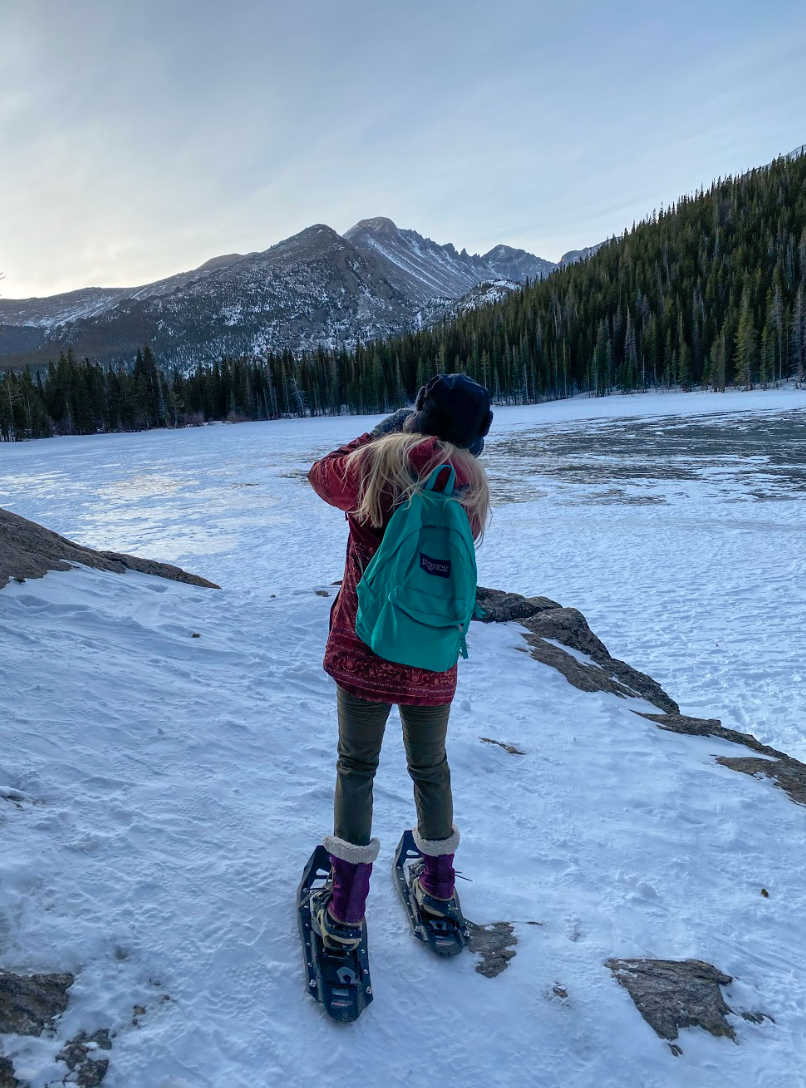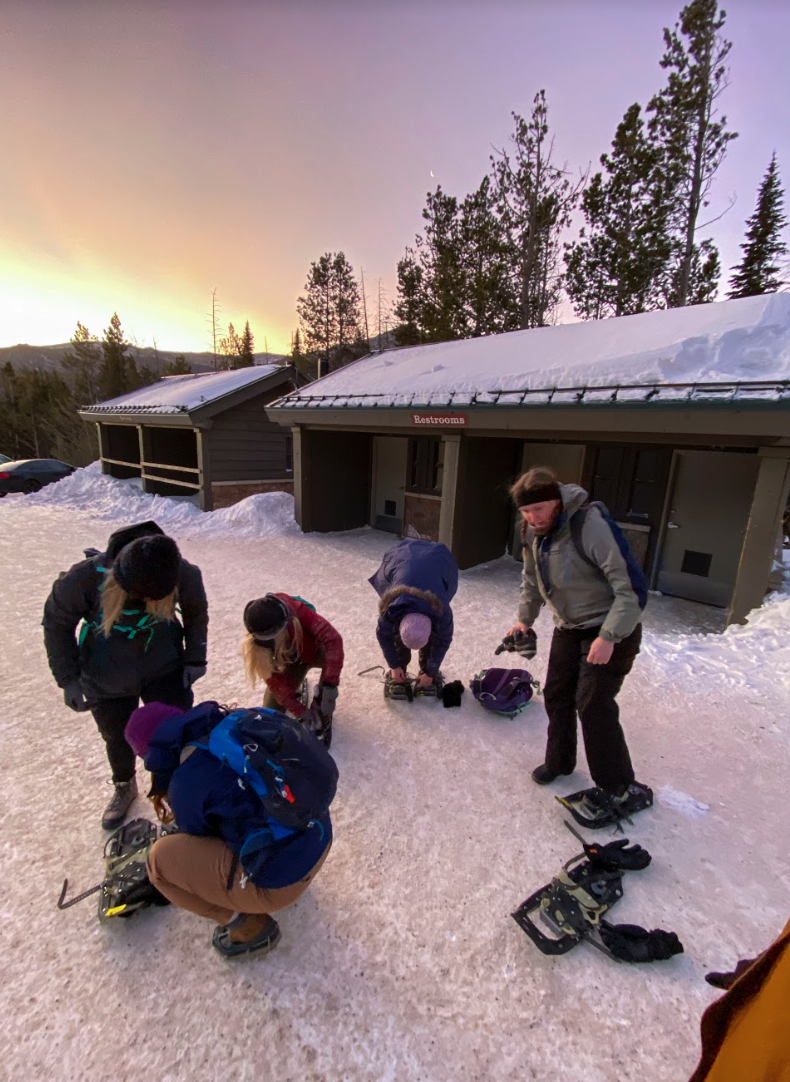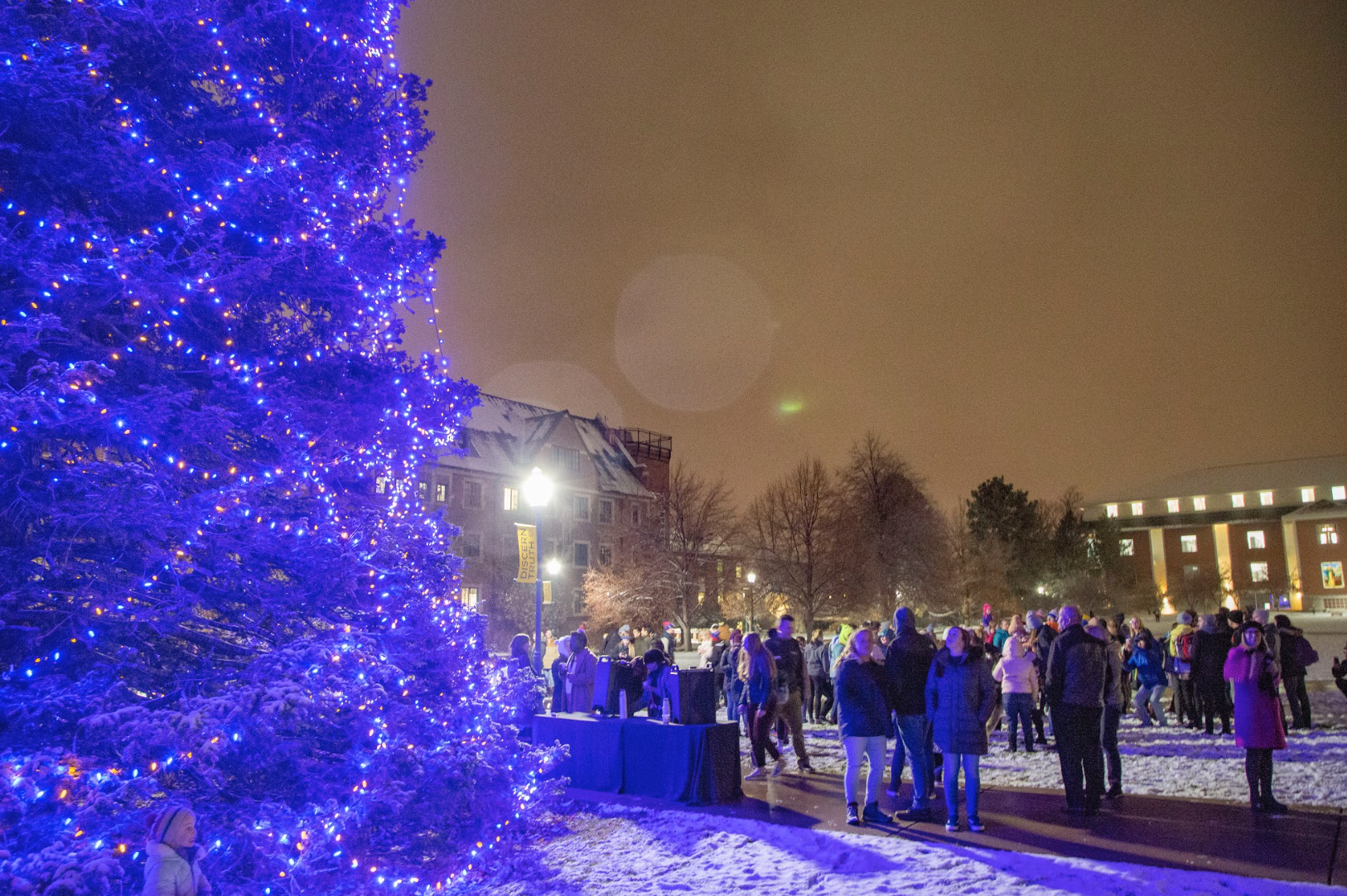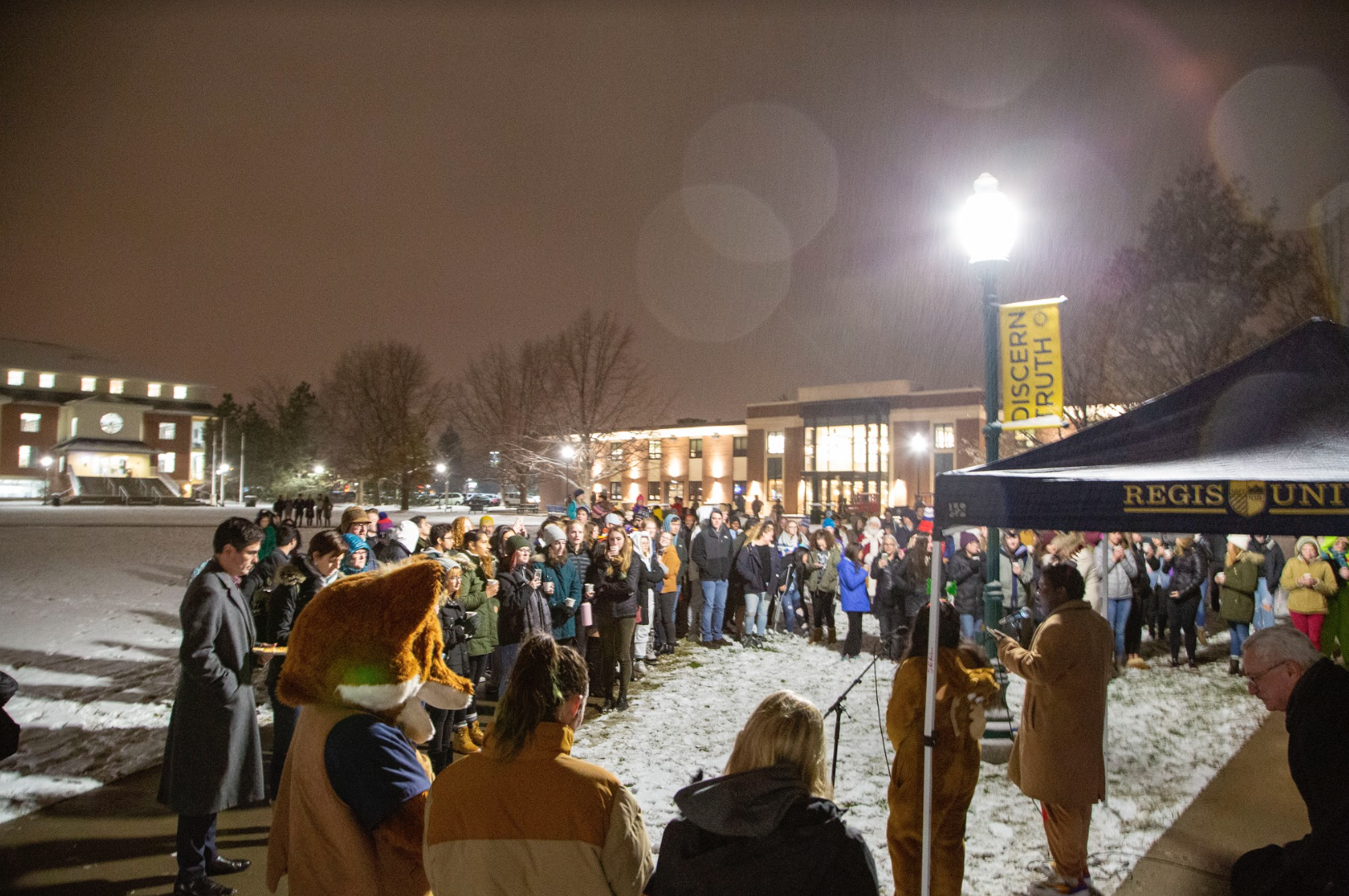Last week, Residence Village residents were sent shocking news: that all of them were being forced into quarantine. Such a decision impacted 137 students. This event carried so much magnitude that it was even covered by local news stations like The Denver Post, KDVR, and 9 News.
Due to the high levels of frustration coming from the students affected, we at the Highlander decided to send out a form to welcome responses from the RV residents themselves. When filling out the form, students had the option to remain anonymous, and many chose to take advantage of that option, which was anticipated due to the controversial nature of the situation at hand.
-----
The email announcement was sent Tuesday 9/15 at 7:10pm
“Over the last week, we have experienced a pronounced increase in the number of positive cases on campus. In particular, the number of cases in the Residential Village have made up nearly 60% of all cases on campus since the new academic year began. As a result, the University has received orders from the DDPHE to enact increased measures to slow the spread of the virus. As such, in accordance with the revised guidance, we are directing occupants of The Residential Village to engage in a period of Enhanced Quarantine & Self-Monitoring for fourteen (14) days beginning immediately. This quarantine is scheduled to expire at 8 a.m. on September 30, 2020 but may be extended as needed to slow the spread of the virus within our community.”
Many students felt that there were communication problems with how the announcement was made and how some further questions were not answered.
“I also didn't appreciate the email coming to us after hours. It felt like they didn’t want to answer questions or want to talk to us. There was some limited information and it was confusing. Communication is so important even now and it’s not fair that we weren’t given proper nor respectful communication the day we were notified,” wrote anonymous.
“I wanted to know why no one else had to quarantine, and I have yet to get a good answer,” wrote anonymous.
Some students didn’t understand why dorms weren’t more affected by cases and/ or quarantine.
“I think in some ways its what should have happened overall at other dorm [buildings] since [there’s more] shared areas, [whereas] the RVs are shared between a small amount of people,” wrote an anonymous student
“I think the quarantine should be for everyone in all dorms rather than just the RVs if they are trying to contain the spread,” wrote an anonymous student
“I think that it is unfair that all of us have to be quarantined, even if our tests come back negative. I think this because we don’t all live in a shared building, instead we share with 3-5 others. I think it would be more understandable to quarantine a whole dorm, as they all have a common entrance, staircase, and bathrooms,” wrote an anonymous student.
There were also disagreements about provisions about the quarantine. Some of the guidelines were expected, such as: no guests; not gathering in common spaces without masks and social distancing; not being allowed to go to an on-campus job, the library, the gym, and other buildings on campus excluding the dining hall. However, while there were several guidelines that made sense to the residents, there were some that they struggled to agree with.
For instance, the email mentioned that students were allowed to visit the dining facilities in the Student Center or Claver Hall on a “grab and go basis” while wearing masks and practicing social distancing. However, once the quarantine was put in place, there were questions of how effective this guideline was, and how well the enforcement was of students leaving their RVs.
One anonymous student wrote, “I also don’t understand what the point of ‘quarantine’ is when we can go to the caf and can leave to go off campus and there are such loose rules on regulating us going anywhere.”
According to the email, the RA’s would “be entering common spaces at least once every evening and documenting any violations.” However, another aspect of the quarantine that was questioned in the responses was the role of the RA’s and how well they were upholding their responsibilities.
“[The quarantine is necessary] because people are being selfish and ignorant and some even neglecting their responsibilities that give them free [room] and free meal plans and even a small scholarship,” wrote an anonymous student.
Another anonymous student wrote, “I feel the leadership shown by most of the RAs has been very questionable. If I am not wrong, the head RA lives in 303 and they are the loudest ones on the block sometimes. I have seen many people come in and out of their RV throughout the last couple of weeks (no maks btw) and have even been woken up by their music. If Regis wants us to follow their guidelines, then they should hire those who also follow them.”
However, the most objection in the responses came in related to the requirement to get tested, but “testing negative will not expedite release from quarantine,” according to the email. Out of the 19 responses, 13 responses included frustrations about being in quarantine even if their entire RV tests negative.
Some students wrote:
“I thought it wasn’t smart to quarantine people that may not even have the virus,” wrote anonymous.
“… if every person in an RV tests negative, then we are in here for no reason. We aren’t spreading the virus if we all test negative, so why should we be punished?” wrote Matthew Gaffney.
“I dont think it makes sense to get punished for other people’s dumb actions, especially since some of us have been following the rules and also tested negative,” wrote anonymous.
“… if you test negative then let us be FREE,” wrote anonymous.
“It is a good idea to slow the spread but, I feel like if my test result is negative, and my roommates are as well, we should be able to go to classes and buildings on campus,” wrote Molly Schmanke.
“I also don’t find it fair that if we get a negative test result we still have to be quarantined. If our whole RV tested negative we should be able to leave,” wrote anonymous.
“I’m still at a loss as to why we must [remain] quarantined even if we get a negative test result. Unimpressed,” wrote anonymous.
Other grievances about the quarantine include how it is punishing the mass for the mistakes of the few. Many students commented on how they believe that this action was the result of a few people choosing to not follow COVID guidelines for the entire campus, leading to the entire Residence Village being placed under quarantine.
“I think it’s inconsiderate to punish all RV residents due to the mistakes of a few people,” wrote anonymous.
“I think that it’s not fair that we all have to be quarantined when it’s only a select few not following the rules. I also think that is unfair that everyone is getting punished when we have been doing what we were told. It’s also not fair that we are the only ones getting punished when there have been others not following the rules,” wrote anonymous.
“I do appreciate Regis taking this seriously and having us all test, but I do also think it’s ridiculous that all of us who have been following guidelines are being punished even if we test negative for covid. I’m missing classes I cannot make up at all during this time and it’s putting a lot of stress on me,” wrote anonymous.
Further building upon the common theme of thinking of the quarantine as a punishment was the expression of outrage by several students for the people who weren’t being careful.
“Those actively choosing to ignore are self-centered individuals who see themselves above the common good and should be addressed as such,” wrote an anonymous student.
“I feel like I’m being punished for other people that lack self-control and responsibility. To those people who decided they wanted to go to parties off campus: fuck you,” wrote an anonymous student.
“There are definitely people still seeing each other and this is doing nothing except ruining things for those of us who are actually following the rules,” wrote an anonymous student.
Other complaints came in the form of questioning the effectiveness of this safety measure in comparison to what else could’ve been done.
“... the school is reacting rather than preventing. Had they been here to shut down all the parties, maybe we wouldn’t be here (not to say that the party people should have been partying in the first place [eyes emoji]),” wrote an anonymous student.
“I don’t appreciate being locked up in my room when I don’t feel sick and I’m not showing any symptoms. I came to live on campus accepting any risk that may present itself hoping I could [at least] try to have a [half-way] normal semester. I get isolating anyone who is actually sick but why the students who are in perfectly good health?” wrote an anonymous student.
Though this quarantine, and other measures the university may take, is the reality for the time being, some students are choosing to make the best of the situation by trying to understand the precaution.
“I think it is an unfortunate necessity,” wrote an anonymous student.
“COVID is not a joke and I am so surprised people still think that way. Almost 200k in the US alone have died because of this awful virus. Please just wear your masks and take this quarantine seriously. Don’t sneak out, stay home, catch up on homework, bond with your roomies, I honestly don’t care. But please be aware that your actions affect all of us This [is] a community, it is time to start thinking that way,” wrote an anonymous student.
As Regis’ “new normal” continues to change, the students and the Regis community have to adapt along with it, whether they agree with it or not. However, if you wish to speak out about something that you think isn’t fair, send a response to theregishighlander@gmail.com and we might share it!
-----
Thank you to everyone who responded to our form, I tried to represent as many voices as I could in this article.
(Note: response excerpts were used to illustrate certain themes among responses, responses were edited for clarity through the use of brackets but were otherwise untouched.)











